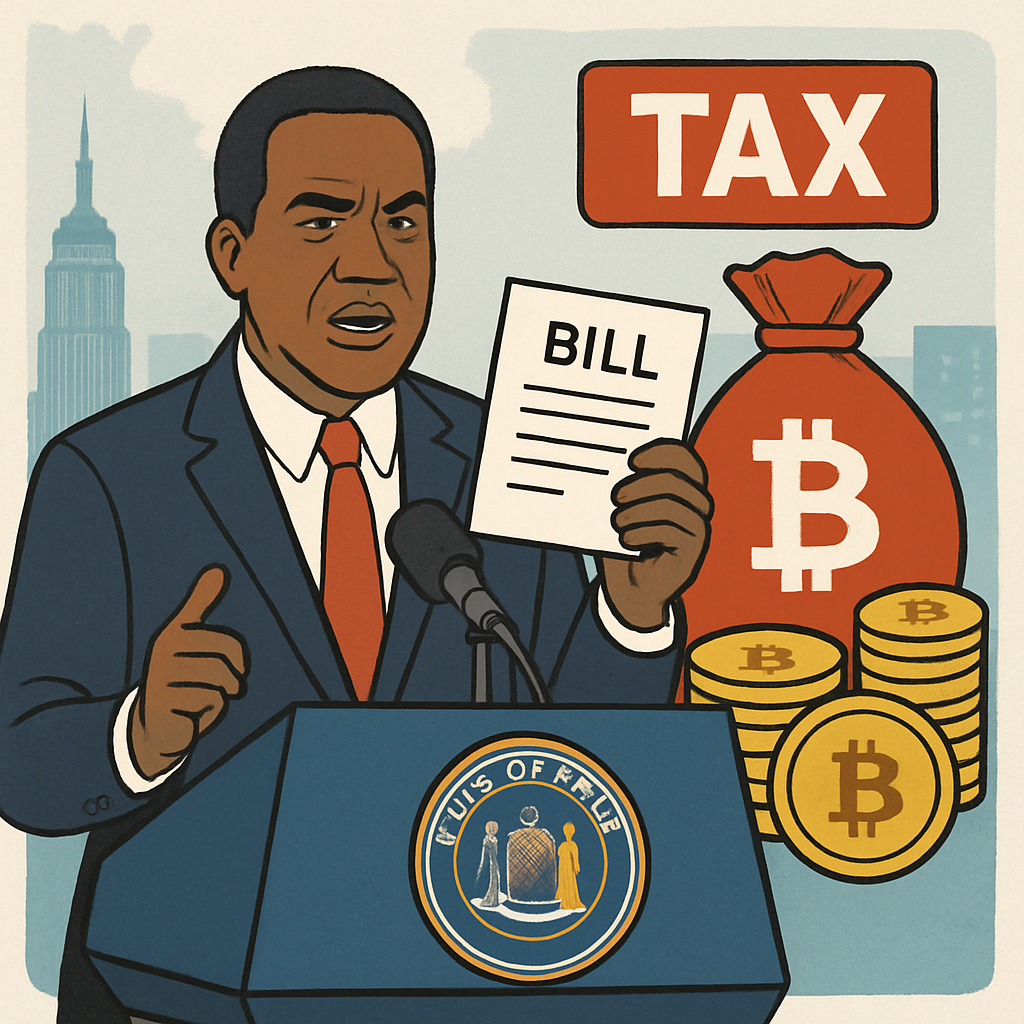On August 15, 2025, New York Assembly member Phil Steck filed Bill 8966 to establish a 0.2% excise tax on all cryptocurrency sales and transfers, including non-fungible tokens. The proposal targets execution and settlement of digital asset transactions conducted within state jurisdiction and is slated to take effect on September 1 upon legislative approval and gubernatorial assent.
Under the measure, exchanges, wallets and decentralized finance platforms operating in New York would be required to collect the excise tax at the point of transaction. Revenue generated by the levy is earmarked for municipal budget allocations, with projections indicating potential annual yields of several hundred million dollars depending on trading volume and market conditions.
Steck’s proposal arrives amid ongoing discussions in several states regarding digital asset taxation policies. Texas and Florida have pursued approaches favouring tax exemptions to attract crypto businesses, while states such as California and Washington maintain capital gains frameworks that classify virtual assets as cash. Bill 8966 represents a revenue-driven model that seeks to balance regulatory oversight with fiscal objectives.
Stakeholder analysis suggests that the excise tax could introduce administrative complexities for service providers, requiring updates to transaction reporting systems and compliance protocols. Exchanges may adjust fee schedules or withdraw specific trading pairs to mitigate margin pressures. DeFi protocols could face reduced transaction throughput as users factor in additional cost components.
Proponents of the bill argue that cryptocurrency activities represent an emerging revenue base, and that equitable tax treatment with traditional financial transactions supports fiscal sustainability. Opponents caution that the tax could drive trading activities to more permissive jurisdictions or offshore platforms, potentially diminishing overall state tax receipts.
The bill is subject to review by the Assembly Committee on Ways and Means, followed by full legislative consideration. The Senate would need to approve a companion bill before referral to the governor for signature or veto. Similar legislative initiatives have been introduced in Wisconsin and Pennsylvania, indicating a national trend in state-level digital asset taxation.
Public hearings and stakeholder consultations are expected in the coming weeks. Economic impact assessments and compliance cost estimates will inform debate. Implementation timelines and enforcement mechanisms will be defined through administrative rulemaking upon enactment.

Comments (0)